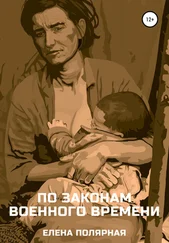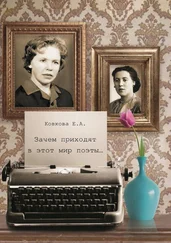Vocabulary: forgive (forgave) – прощать, groan – стонать, thread – нитка, to be loose – зд. болтаться, chunk – головешка (тлеющий кусок дерева), tie – привязывать, bedpost – столбик кровати для полога
Tenses to use: Present Simple, Past Simple, Present Continuous, Past Continuous, Future Simple
Monday morning (be) unhappy time for Tom as it (mean) another terrible school week.
Tom (think) for a few minutes. What could stop him from coming to school?
Suddenly he (find) something. One of his upper teeth (be) loose. This (be) good – for the beginning. Then he (remember) some symptoms he (hear) from a doctor. It (be) a chance!
He (begin) to groan. But his brother Sid (sleep). He (groan) louder. No result from Sid. Tom (begin) to get angry and (shake) him. Sid (jump) up.
«Tom! What (be) the matter?»
No answer.
«Tom!»
«I (forgive) you everything, Sid … ( groan) … everything you (do) for me in the past… Sid, when I (die)…
«Oh, Tom, no! Don’t die!»
Sid (run) downstairs and (cry),
«Oh, Aunt Polly, Tom (die)!»
In a minute Aunt Polly and Mary (be) near Tom’s bed. «What (be) the matter with you, child?»
«Oh, Auntie, I (have) gangrene on my foot!»
The old lady (sit) down and (cry) a little, then (laugh) a little, then (do) both together.
«Aunt Polly, it (hurt) so much that I (forget) about my (tooth).»
«What (happen) to your tooth? Well, it (be) loose, but you (not/die) of it. Mary, get me a silk thread and a chunk of fire out of the kitchen.»
«Oh, Auntie, (not/pull) it out! I (go) to school!» (cry) out Tom.
«To school?! So, you (do) all this…»
At that time Mary (return) with the dental instruments. The old lady (tie) one end of the thread to Tom’s tooth and the other to the bedpost. Then she suddenly (get) the chunk almost in the boy’s face. The next moment the tooth (hang) on the bedpost…
Answer the questions:
1. Why was Tom unhappy on Monday morning?
2. What was the first thing that could stop him from going to school?
3. Why did Sid run downstairs crying for Aunt Polly?
4. Why did Aunt Polly begin to cry and laugh at the same time?
5. What were the dental instruments Mary brought from the kitchen?
25. «Three Men in a Boat» by Jerome K. Jerome
Vocabulary: put up a tent – ставить палатку
Tenses to use: Present Simple, Present Continuous, Past Simple, Past Continuous, Present Perfect.
Note: in the scene the narrator imagines some verbs are already in the right form to show that the imaginary events are mostly in present tenses.
We (sit) in my room (discuss) our journey when Harris (ask), «Where we (sleep) at night?»
George and I (not/like) the idea of sleeping in the hotels. We (want) to sleep outside.
«And what about when it (rain)?» Harris (ask).
I could imagine this scene easily…
…It is evening. You are very wet. There is a lot of water in the boat and everything is wet, too. Two of you (try) to put up the tent. You already (put) up your side of the tent, but the other man (not/do) anything yet. You just (tied) the first ropes to the ground. Suddenly he (pull) the tent from his side and (destroy) all your work.
«What you (do)?» you cry.
«And what you (do)?» he cries.
«You (pull) out the ropes from my side!» you answer.
You (shout) at each other until the tent (fall) down.
The third man is in the boat. He already (prepare) a simple meal and now he (want) to know why you two (not/finish) with the tent yet.
At night you (dream) that a large animal suddenly (sit) down on you. You (wake) up and (understand) that something terrible (happen). At first you (think) that the end of the world (come). There is something on you that (not/let) you breath. You (fight). You (shout). At last, you (find) your head in the fresh air. Near you, you (see) Harris.
«Oh, it (be) you. What (happen)?» you (ask).
«The wind (blow) down the tent,» he (answer).
At that moment, you (hear) a voice from below, «Get off my head!»
Answer the questions (use present tenses):
1. What are the evenings in the tent in rainy weather like?
2. Why are two men angry with each other while they are putting up the tent?
3. What has the man in the boat already done? What does he want to know?
4. What happens at night?
5. What do two of the friens find out when they hear «Get off my head!»?
26. «Robinson Crusoe» by Daniel Defoe
Vocabulary: cave – пещера
Tenses to use: Present Simple, Past Simple, Future Simple, Present Perfect, Present Perfect Continuous.
My life on the island (go) on. I often (think), «I (live) here for ten months. During those months I (work) hard on my cave and my fence. I (do) a lot of work already. It (be) time to find out more about the rest of the island.»
So, one day I (set) out to the opposite side of the island. During my journey, I (see) that my house (be) on the worst side of the island, because I (find) many greener and much more beautiful places. But I (not/want) to move. It (be) my home.
I (have) a lot of food. But there (be) one thing that I (want) very much – hot soup. «I already (learn) to make pots to keep my food in,» I (say) to myself, «but for a long time I (want) to make a harder, stronger pot to cook in right on the fire.»
Then, one day, I (be) lucky. I (make) some new pots and (put) them on the fire.
«This time I (make) the fire very, very hot,» I (think) many hours later, «and my pots (be) still there. They (stay) in this hot place for a long time. May be, this time they (be) strong enough to cook in.»
And I (be) right. That night I (have) hot water for the first time on the island.
I never (stop) thinking about escape. When I (travel) to the other side of the island, I (see) many islands far away in the sea and (say) to myself, «I (plan) to escape since I (be) brought here by the storm. Perhaps, one day I (be) able to get to England.»
I (decide) to make a boat. I (cut) down a big tree, (cut) off its branches and (begin) to make a long hole in it. It (take) a long time, but I (keep) telling myself, «Soon I (have) a fine canoe. I (work) on it for six months already, and I (finish) most of it.»
How stupid I (be)! My canoe (be) too heavy, and I could not move it! I (pull) and (push) it and (try) everything, but it (not/move). I (be) very unhappy for a long time after that. Two years later, I (make) myself a smaller canoe, but I (not/try) to escape in it. The boat (be) too small for a long journey, and I (not/want) to die at sea.
Answer the questions:
1. What did Robinson want to do after ten months on the island? What did he find out during the journey?
2. What was the problem about the pots he made? How did he manage to make a pot to cook in?
3. What did Robinson do to escape from the island? What mistake did he make?
27. «The Wonderful Wizard of Oz» by Frank Baum
Vocabulary: raft – плот, pole – шест, stick (stuck, stuck) – застревать, hang (hung, hung) – висеть, stork –аист, bottom – дно, vanish – исчезать
Tenses to use: Present Simple, Past Simple, Present Continuous, Past Continuous, Future Simple, Present Perfect
Dorothy and her friends (sail) across the river on the raft. They all (have) poles to push the raft through the water. Suddenly the Scarecrow (push) his pole so hard that it (stick) in the bottom. In a moment he (hang) on the pole in the middle of the river.
Читать дальше
Конец ознакомительного отрывка
Купить книгу
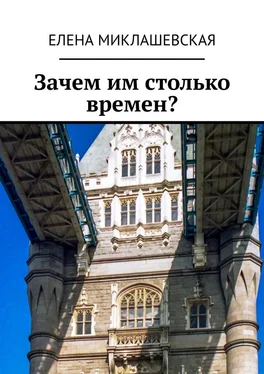
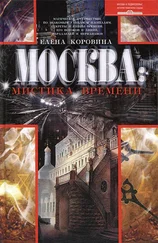

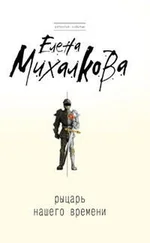

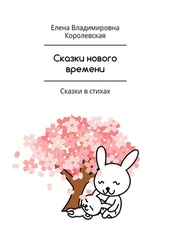
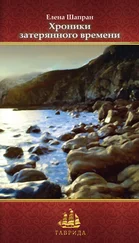
![Елена Гордина - Зачем ты это сделала? [litres с оптимизированной обложкой]](/books/433414/elena-gordina-zachem-ty-eto-sdelala-litres-s-opti-thumb.webp)
